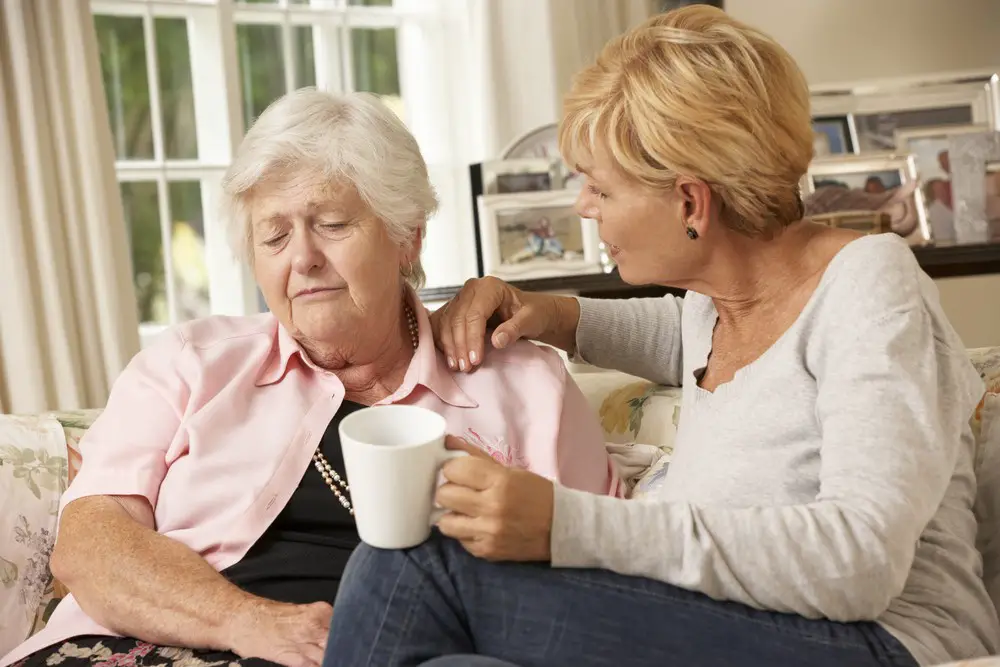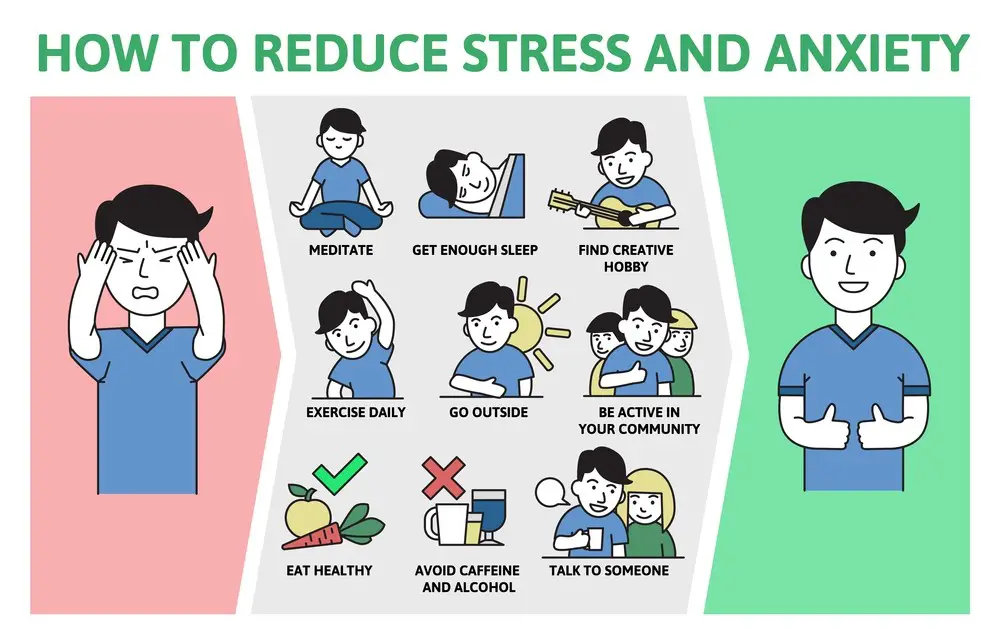As a BetterHelp affiliate, we receive compensation from BetterHelp if you purchase products or services through the links provided
For many, the journey of caring for seniors at home can be challenging, as stress and anxiety are the leading causes. As you navigate the complexities of ensuring the well-being of seniors, it’s natural to encounter challenges.
The importance of this article lies in the relief it offers, addressing a concern you may be all too familiar with. Caring for elderly individuals comes with a unique set of stressors that affect them.
In this guide, discover a wealth of home care nurse tips meticulously designed to bring calm and comfort into your caregiving journey.
 Training and Skill Development
Training and Skill Development
Training and skill development are crucial aspects of caring for seniors at home. Nursing is one crucial element of care that possesses such developments. It is for those who want to make a significant difference in the lives of the elderly and their families.
It is why, if you’re wondering why to become a nurse, you’ll find fulfillment in providing compassionate care to older adults. It reduces their stress and anxiety and promotes their overall well-being.
According to Carson-Newman University, the role of a home care nurse extends beyond the medical aspects. It involves understanding the unique needs of seniors, creating a supportive environment, and offering emotional support. The right training equips nurses with essential skills, such as administering medication, managing chronic conditions, and addressing the mental and emotional aspects of aging.
Effective Time Management
Balancing caregiving duties alongside other obligations can often feel like a daunting task. Mastering the art of efficient time management can be a transformative factor, greatly enhancing your capacity to deliver top-notch care.
To start:
- Establish a routine that balances caregiving tasks and other responsibilities.
- Create a schedule that includes time for meal preparation, medication management, and personal care for the senior.
- Allocate moments for relaxation, social interactions, and sleep. This structured approach can help you avoid feeling constantly rushed or disorganized.
Another crucial element in mastering time management is prioritization, as emphasized by DailyCaring. Maintaining a consolidated to-do list is a practical way to achieve this. It helps you organize since it lets you prioritize your chores and see them all at once.
Try concentrating on three main goals each day. Also, try several organizational strategies to see what works best for you. For instance, you could keep a main list and another “today’s primary” list. Alternatively, utilize a note-taking app that syncs to your PC, tablet, and smartphone for convenient access.
Focus on finishing smaller tasks in the beginning to offer yourself a sense of success when you require encouragement.
Building Strong Support Systems
Consider joining support groups or seeking the guidance of a social worker or counselor specializing in senior care. These professionals can offer valuable insights, coping strategies, and a safe space to share your concerns.
Remember that building a strong support system gives you the help and resources to provide seniors with the best care. With the support of your community and healthcare professionals, you can create a nurturing and less stressful environment.
 Self-Care and Wellness Practices
Self-Care and Wellness Practices
Start by carving out moments, even if they’re brief. These intervals provide opportunities for activities like reading, brief walks, or engaging in deep breathing exercises. It’s important to note that even short breaks can significantly influence your mental and emotional well-being.
A balanced diet and regular exercise are key contributors to overall health. Sufficient sleep also plays a vital role in preserving one’s overall well-being. Ensure enough rest to recharge the energy and to cope with stress effectively. If necessary, do not hesitate to contact mental health professionals for support. Consulting with a therapist or counselor can offer valuable strategies for handling stress and anxiety effectively.
Open Communication and Collaboration
Begin by creating a foundation of open and honest communication with the senior you care for. Actively listen to their desires, preferences, and worries. This approach not only aids in comprehending their needs but also nurtures their sense of dignity and personal agency.
According to AHA, communication with family members is also essential. Pay attention well. Never forget that the most crucial part of communicating is listening. Discuss needs, anxieties, and fears honestly. This will encourage candid and insightful discussion. As a result, other family members could feel at ease sharing.
A loved one’s wishes in an emergency are made clear by advance directives. Though these topics are sometimes touchy and challenging, planning can help reduce stress.
Don’t be afraid to seek help or advice when you encounter challenges. Doctors or senior care specialists can provide valuable insights and guidance. They can offer solutions for medical issues, suggest adaptive equipment, and recommend strategies.
Promoting a Comfortable Environment
To start, it’s essential to maintain an organized and clutter-free living environment. A neat living space promotes more effortless mobility for seniors and minimizes the chances of accidents. To enhance safety, consider adding handrails, grab bars, and non-slip mats in high-traffic areas like bathrooms and hallways.
Pay attention to lighting, as older adults often require better visibility. Adequate lighting can prevent falls and improve their overall comfort. In addition, make sure the home is at a comfortable temperature, especially during extreme weather conditions.
Mental Health America states air quality is essential to a comfortable environment. Your brain’s oxygen levels can rise with good air quality, improving focus and mood. It’s also linked to improving sleep quality and lessening the impact of stress hormones.
Check for air quality in your location through various online resources. It’s best to open windows or breathe fresh air from the outdoors. It is primarily due to nature’s other advantages. Also, using air purifiers at home to filter the air helps to safeguard health. Breathing exercises have several further advantages.
Another aspect is providing a quiet and peaceful atmosphere. Minimize noise and disturbances that can cause stress, especially during resting hours. Ensure that the senior has access to comfortable seating and resting areas. Encourage relaxation techniques like reading, listening to calming music, or enjoying the company of loved ones.
Identifying Warning Signs and Seeking Help
First and foremost, pay attention to any changes in the senior’s physical, emotional, or mental health. Remain vigilant for signs of depression, confusion, discomfort, or pain. These signals could indicate underlying health concerns that need prompt medical attention.
Keeping lines of communication open with seniors is crucial, encouraging them to share their emotions and concerns freely. Many elderly individuals may not readily voice their concerns. Therefore, actively listen and observe their behavior to detect any distress or anxiety they may be experiencing.
Conclusion
Providing in-home care for seniors is a meaningful journey marked by love and responsibility. While it comes with its challenges, a well-considered approach can significantly reduce stress and anxiety for your elderly loved ones. By focusing on these tips, you can provide the best care while.
Remember, it’s a journey filled with compassion and dedication; you don’t have to walk it alone. Seek help, share your concerns, and be kind to yourself. Working together, you can establish a nurturing and supportive environment for your senior loved ones. It ensures these golden years truly shine for elderly individuals with happiness and comfort.
This site contains affiliate links to products. We will receive a commission for purchases made through these links.


 Training and Skill Development
Training and Skill Development Self-Care and Wellness Practices
Self-Care and Wellness Practices
